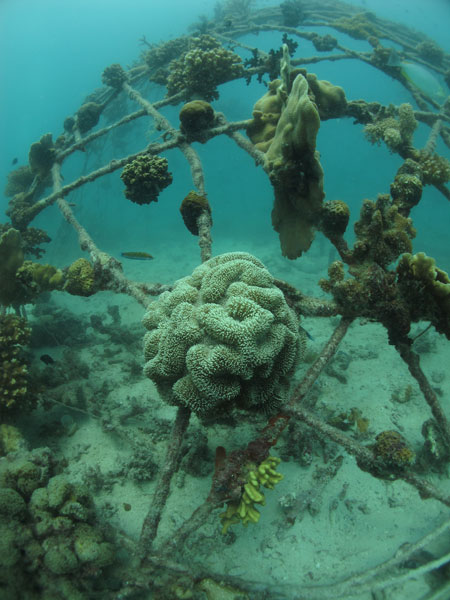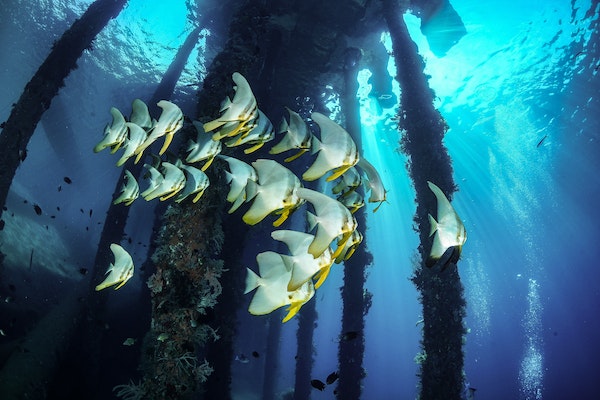Artificial Reefs What works and what doesnt Biology Diagrams
Artificial Reefs What works and what doesnt Biology Diagrams Artificial reefs offer new hard substrate habitats that can enhance the survival and the development of large adults and mature stages of different taxa. Studies have demonstrated that well designed artificial reefs can not only attract marine life from the surrounding environment but also lead to the production of a new food chain. The addition of substrate (or "artificial reefs")—i.e., deploying or building artificial structures as substrate for coral reef restoration through coral recruitment or coral planting—is

Innovative technologies for ocean restoration. Our oceans are under immense pressure from pollution, climate change, and overfishing. This kickstarts the food chain, creating a base environment that attracts small marine animals. Artificial Reefs in the Wadden Sea: in the Netherlands, 48 artificial reefs have been deployed along the

Inside the effort to save an iconic Caribbean coral reef Biology Diagrams
Results of the review include ref:. 10 coral restoration intervention types were identified, with direct transplantation and coral gardening being the most common methods. Other interventions included: artificial reefs, substrate enhancement with electricity, substrate stabilization (4%), algae removal, larval enhancement, and micro-fragmentation.

As global marine ecosystems face increasing threats, innovative solutions are crucial to preserve biodiversity and ensure sustainability. Coral reefs, often called the "rainforests of the sea," are vital for marine life, coastal protection, and economic benefits through tourism and fishing. However, climate change, pollution, and habitat destruction have led to widespread coral reef decline

How Artificial Reefs are saving marine ecosystems Biology Diagrams
Over the past decade, there has been increasing interest in marine restoration, requiring a consideration of various approaches for optimal success. Artificial reefs (ARs) have been employed for marine restoration and fisheries management, but their effectiveness in restoring ecosystems lacks well-defined ecological criteria and empirical evidence. A systematic review of the literature on ARs
